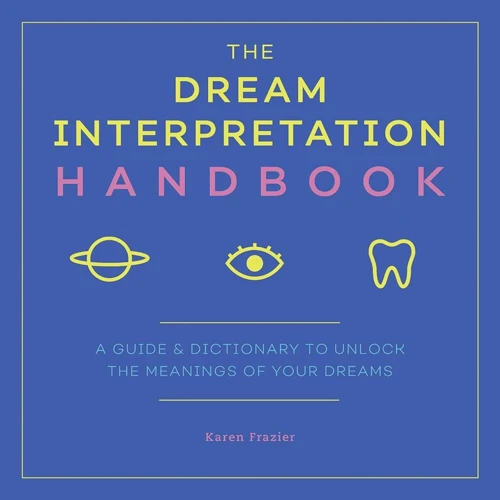Have you ever woken up from a dream, only to have it slip away from your memory moments later? Dreams can be fascinating and mysterious, filled with hidden meanings and insights into our subconscious minds. Unlocking the secrets of your dreams can provide valuable self-reflection and guidance. But how can you remember your dreams more easily? In this article, we will explore various techniques and strategies to enhance dream recall and dive into the world of dream symbolism. Discover how to decode the messages from your dreams and gain a deeper understanding of yourself. So, grab a pen, get comfortable, and get ready to unlock the hidden meanings of your dreams.
The Importance of Dream Recall

Dream recall is a crucial aspect of delving into the world of dreams. It allows us to remember and analyze the content of our dreams, gaining valuable insights into our subconscious thoughts and emotions. By actively remembering our dreams, we can unlock hidden meanings and symbolism that may hold significant personal or psychological relevance. Dream recall serves as a bridge that connects our conscious and unconscious selves, enabling us to explore unresolved issues, fears, desires, and aspirations. Through dream recall, we can tap into our inner wisdom and gain a deeper understanding of ourselves. So, if you’ve ever wondered why dream recall is important, it’s because it opens the door to self-discovery and self-reflection. Remembering your dreams can be the first step towards uncovering the messages and guidance they hold.
Techniques to Improve Dream Recall

Improving dream recall is an essential skill for unlocking the hidden meanings within our dreams. Here are several effective techniques to enhance your dream recall abilities:
1. Keep a Dream Journal: Write down your dreams as soon as you wake up to capture details and emotions. This practice encourages the brain to remember dreams more readily.
2. Set Intentions Before Sleep: Before going to bed, tell yourself that you will remember your dreams upon awakening. This simple intention can significantly increase your dream recall.
3. Use Mnemonic Devices: Mnemonic devices, such as repeating a phrase or visualizing a specific object, can help reinforce dream memories in your mind.
4. Create a Bedtime Routine: Establish a relaxing routine before sleep to signal to your brain that it’s time to remember dreams. This can include activities like reading, meditating, or listening to soothing music.
5. Get Adequate Sleep: Prioritize quality sleep to ensure your brain has enough restorative rest, as this is crucial for dream recall. Stick to a consistent sleep schedule and aim for seven to nine hours of sleep each night.
By incorporating these techniques into your daily routine, you can improve your ability to recall dreams and unlock their hidden meanings. Don’t let your dream experiences fade away – explore the depths of your subconscious mind and gain valuable insights. You never know what revelations await you.
1. Keep a Dream Journal
Keeping a dream journal is a powerful technique to improve dream recall. By recording your dreams in a journal, you create a space to capture the details and emotions of your dreams. This act of writing helps solidify the memories in your mind and increases your ability to recall them later. When keeping a dream journal, it’s important to write in it as soon as you wake up, even if you only remember fragments of your dreams. Include as much detail as possible, such as people, objects, locations, and emotions. Over time, patterns and recurring themes may emerge, providing insight into your subconscious mind. Additionally, you can use the dream journal to track your progress in understanding and interpreting your dreams. To further enhance the effectiveness of your dream journal, you can also use a dream symbol guide or explore dream analysis techniques. So, grab a notebook and pen, and start documenting the fascinating landscapes of your dreams. Who knows what hidden meanings you may uncover?
2. Set Intentions Before Sleep
Setting intentions before sleep is a powerful technique that can greatly enhance your ability to remember dreams. Before going to bed, take a few moments to focus your mind on the desire to remember your dreams upon waking up. Repeat affirmations such as “I will remember my dreams” or “I am open to receiving dream messages.” This practice helps to program your subconscious mind and strengthens your intention to recall dreams. You can also visualize yourself waking up in the morning and effortlessly remembering the vivid details of your dreams. By setting intentions before sleep, you prime your mind to be more receptive to dream recall, increasing the likelihood of remembering your dreams in the morning. So, tonight, before you drift off into slumber, set your intentions to unlock the hidden messages of your dreams.
3. Use Mnemonic Devices
Using mnemonic devices can be a helpful technique to improve dream recall. Mnemonic devices are memory aids that help you retain information by associating it with something familiar or creating an easily memorable pattern. When it comes to dreams, utilizing mnemonic devices can assist in remembering dream details upon waking up. One effective mnemonic device is creating an acronym or using letters to represent key elements of the dream. For example, if you dreamt about being mugged, you could assign the letters M, M, and G to represent the key elements of the dream. Another mnemonic device is visualization. By creating vivid mental images of your dreams, you can make them more memorable and enhance your ability to recall them later. These techniques can significantly improve your dream recall and enable you to unlock the hidden meanings within your dreams. So, next time you wake up with a dream on your mind, try using mnemonic devices to retain those valuable dream memories.
4. Create a Bedtime Routine
Creating a bedtime routine is an effective technique to improve dream recall. A consistent routine signals to your brain that it’s time to wind down and prepare for sleep, making it easier to remember your dreams. Start by setting a regular bedtime and wake-up time to regulate your sleep cycles. Prioritize relaxation activities before bed, such as reading a book, practicing gentle stretches, or taking a warm bath. Avoid stimulants like caffeine or electronics close to bedtime, as they can interfere with the quality of your sleep and dream recall. Engage in calming practices such as meditation or deep breathing exercises to quiet the mind and promote a peaceful state of sleep. By establishing a soothing bedtime routine, you create the ideal conditions for vivid dreams and easier dream recall. So, take the time to create a routine that works for you and watch as your dream recall improves night after night.
5. Get Adequate Sleep
Getting adequate sleep is crucial for enhancing dream recall. When we are well-rested, our minds are more alert and receptive to remembering dreams. Lack of sleep can lead to fragmented and hazy dreams, making it difficult to recall them with clarity. Aim for a consistent sleep schedule and prioritize getting the recommended amount of sleep each night. Additionally, maintaining a relaxing sleep environment and following a bedtime routine can help promote deep and restful sleep, further enhancing dream recall. So, if you want to remember your dreams more easily, make sure to prioritize getting enough sleep and creating the ideal conditions for a good night’s rest. Sweet dreams await you!
Understanding Dream Symbolism

Understanding dream symbolism is key to unlocking the deeper meanings behind our dreams. Dreams often communicate in symbols and metaphors, creating a language unique to our individual subconscious minds. By learning to decipher these symbols, we can gain a clearer understanding of the messages our dreams are trying to convey. There are different types of dream symbols, including common symbols that have universal meanings, personal symbols that are unique to our own experiences and associations, and even cultural or archetypal symbols that hold broader societal significance. For example, dreaming of being mugged may symbolize feelings of vulnerability or powerlessness in waking life. It’s important to consider the context and emotions associated with the dream to fully understand its symbolism. Exploring dream symbolism allows us to tap into the rich tapestry of our subconscious minds and uncover the hidden layers of meaning within our dreams.
1. Common Dream Symbols
Common dream symbols are recurring images or themes that occur in the dreams of many individuals. These symbols often carry universal meanings and can provide insight into the dreamer’s emotional state, desires, or fears. Some common dream symbols include water, which represents emotions and the subconscious mind, and flying, which symbolizes freedom and a sense of personal empowerment. Animals, such as dogs or snakes, can represent different aspects of our personality or instinctual behaviors. Falling is often associated with a lack of control or stability in waking life. Dreams of being chased could signify avoidance or an unresolved conflict. Understanding these common dream symbols can help decipher the underlying meanings of our dreams and provide a starting point for interpretation. So, the next time you dream of a dog or find yourself falling from the sky, take a moment to reflect on what these symbols may represent in your life.
2. Personal Dream Symbols
Personal dream symbols are unique to every individual and can hold significant meaning and interpretations in their dreams. These symbols can vary widely and may be derived from personal experiences, memories, or even cultural influences. It is important to reflect on your own personal associations and emotions connected to these symbols. For example, if you frequently dream about makeup, it may be worth exploring the symbolism of self-expression or façades in your life. By analyzing and understanding these personal dream symbols, you can unlock deeper layers of meaning within your dreams and gain valuable insights into your own psyche and subconscious processes. Understanding personal dream symbols allows us to decode the messages and guidance our dreams are trying to convey to us. So, pay attention to the unique symbols that appear in your dreams and explore their personal significance.
3. Cultural and Archetypal Symbols
Cultural and archetypal symbols play a significant role in dream symbolism. These symbols are deeply rooted in collective human experiences and shared cultural beliefs. They can represent universal themes and emotions that transcend individual interpretation. Cultural symbols may include objects, events, or rituals that hold specific meaning within a particular society or culture. Archetypal symbols, on the other hand, are timeless and exist across various cultures. They represent fundamental human experiences and emotions that are universally understood. Examples of archetypal symbols include the journey, the hero, or the mother figure. Understanding and interpreting these cultural and archetypal symbols can provide valuable insights into the deeper meaning and significance of our dreams. So, the next time you encounter a cultural or archetypal symbol in your dreams, take a moment to reflect on its potential implications and connections to your waking life.
Analyzing and Interpreting Dream Meanings

Analyzing and interpreting dream meanings is an intriguing process that allows us to unravel the hidden symbolism and messages within our dreams. To begin, it is essential to write down our dreams in a dream journal, capturing as many details as possible. As we review our dream journal, we can identify recurring themes, emotions, and symbols that appear throughout our dreams. It is crucial to pay attention to the emotions evoked by our dreams, as they can provide valuable insights into our subconscious desires or fears. Additionally, considering our personal associations with certain symbols can shed light on their unique meanings for us. While dream dictionaries and resources can offer general interpretations, it is important to remember that the symbolism of dreams is highly subjective and can vary from person to person. By engaging in the process of analyzing and interpreting our dream meanings, we embark on a journey of self-discovery and self-reflection, unlocking the profound insights that lie within our subconscious minds. (Note: No relevant anchor text found in this paragraph)
1. Write Down Your Dreams
Writing down your dreams is a powerful technique for improving dream recall. Keeping a dream journal allows you to capture the details of your dreams while they’re still fresh in your mind. This practice helps train your brain to prioritize dream memory and increases your overall dream recall capacity. When writing in your dream journal, be sure to include as many specific details as possible, such as people, objects, locations, and emotions. Use vivid language to describe your experiences, highlighting key moments and symbols that stood out to you. By regularly documenting your dreams, you create a reference point for future analysis and reflection. It’s fascinating to look back at your dream journal entries and start noticing patterns, themes, and even potential connections to your waking life. So, grab a notebook or create a digital journal, and start capturing the rich tapestry of your dreams. Your dream journal can be a valuable
Subscribe to Our Newsletter
Sign up to receive the latest news and updates.
2. Identify Emotions and Themes
When analyzing and interpreting dream meanings, it is important to identify the emotions and themes present in your dreams. Emotions are powerful indicators of the underlying messages within our dreams. Pay close attention to the feelings that arise during and after the dream. Are you experiencing fear, joy, sadness, or confusion? These emotions can provide valuable insights into the subconscious issues or concerns you may be grappling with. Additionally, identifying recurring themes throughout your dreams can help uncover patterns or recurring motifs that hold significance for you. These themes can range from mundane to symbolic, and they often reflect our fears, desires, or unresolved issues in our waking lives. By recognizing and exploring the emotions and themes present in your dreams, you can gain a deeper understanding of yourself and the messages your subconscious is trying to convey. So, take a moment to reflect on the emotions and themes present in your recent dreams and start unraveling their hidden meanings.
3. Consider Your Personal Associations
When analyzing and interpreting dream meanings, it is important to consider your personal associations. Symbols in dreams can vary in meaning from person to person, depending on individual experiences, memories, and beliefs. For example, dreaming of a snake may evoke fear and danger for some, while for others it may symbolize transformation or healing. Reflecting on your own thoughts, feelings, and memories associated with specific dream symbols can provide valuable insights into their personal significance. Pay attention to the emotions that arise when thinking about these symbols and consider any past experiences or events that may be connected. Understanding your personal associations can help unravel the unique meaning embedded within your dreams. So, when exploring the interpretation of your dreams, remember to delve into your own personal connections and experiences.
4. Seek Guidance from Dream Resources
Seeking guidance from dream resources can greatly aid in the interpretation and understanding of your dreams. There are various resources available, both online and in print, that provide valuable insights into dream symbolism and meaning. Books, websites, and even dream dictionaries can offer interpretations and explanations for common symbols in dreams. These resources can help you unravel the hidden messages and themes present in your dreams. Exploring these resources can provide you with different perspectives and ideas that may resonate with your own personal experiences and associations. Remember, while these resources can serve as a starting point, it’s important to trust your own intuition and apply the interpretations that feel most relevant to you. So, whether you’re curious about the significance of dreaming about being mugged, experiencing a miscarriage, or even applying makeup, delve into dream resources to unlock deeper meanings and insights.
Tips for Enhancing Dream Recall
Enhancing dream recall is essential for unlocking the hidden meanings within our dreams. To improve your ability to remember dreams, there are several helpful tips you can follow. Firstly, practicing visualization and meditation can enhance your overall dream recall by increasing your mental clarity and focus. Additionally, creating a dream-friendly environment by keeping a journal by your bedside, eliminating distractions, and using calming scents can promote a deeper connection to your dreams. It is also important to limit alcohol and stimulants, as they can disrupt the sleep cycle and hinder dream recall. Lastly, exploring techniques such as lucid dreaming can not only enhance dream recall but also allow you to actively participate in and influence your dreams. By incorporating these tips into your routine, you can enhance your ability to remember and explore the fascinating world of your dreams.
1. Practice Visualization and Meditation
One effective way to enhance dream recall is to practice visualization and meditation. By incorporating these techniques into your daily routine, you can train your mind to be more attuned to dreams and improve your ability to remember them. Visualization exercises involve mentally recreating dream scenarios, focusing on the details and emotions associated with them. This helps strengthen the neural pathways related to dream recall. Meditation, on the other hand, promotes relaxation and mindfulness, creating a receptive state of mind for dream recall. You can use guided meditation specifically designed to enhance dream recall or simply practice mindfulness meditation. These practices can help you become more in tune with your subconscious mind and increase your chances of remembering your dreams vividly. So, give visualization and meditation a try to unlock the hidden realms of your dreams.
2. Create a Dream-Friendly Environment
Creating a dream-friendly environment can greatly enhance your ability to remember and interpret your dreams. Start by ensuring that your bedroom is a comfortable and peaceful space, free from distractions and noise. Keep your bedroom well-ventilated and at a comfortable temperature. Consider adding calming elements such as soft lighting, soothing scents, or relaxing music. Some people find that using essential oils like lavender or chamomile can promote a more relaxed state conducive to dreaming. Experiment with different sleep positions and bedding to find what works best for you. Additionally, you can try incorporating dream-inducing practices like dream incubation, where you set an intention to dream about a specific topic or question before going to sleep. By creating an environment that promotes relaxation and mental clarity, you’ll be setting the stage for vivid and memorable dreams.
3. Limit Alcohol and Stimulants
Limiting alcohol and stimulant intake is crucial for enhancing dream recall and overall dream quality. Alcohol and stimulants can interfere with our sleep patterns and disrupt the REM (rapid eye movement) phase, which is when most dreaming occurs. The effects of substances like alcohol, caffeine, and nicotine can inhibit our ability to remember dreams clearly or even recall them at all. These substances can also affect the overall quality of our sleep, leading to fragmented and less restorative rest. By reducing or eliminating alcohol and stimulant consumption, we create a healthier sleep environment that promotes deep, uninterrupted sleep and increases the likelihood of vivid and memorable dreams. So, if you want to improve your dream recall, it’s wise to prioritize a lifestyle that minimizes alcohol and stimulant consumption. Your dreams will thank you for it!
4. Experiment with Lucid Dreaming Techniques
Experimenting with lucid dreaming techniques can be an exciting way to enhance your dream recall and gain even more control over your dreams. Lucid dreaming occurs when you become aware that you are dreaming while still in the dream state. This awareness allows you to actively participate and manipulate the dream’s events. Some techniques to aid in lucid dreaming include reality checks, such as looking at your hands or a clock throughout the day to determine whether you are dreaming or awake. Another technique is keeping a dream journal to help recognize recurring dream signs or patterns that may indicate you are dreaming. Additionally, practicing mindfulness and meditation techniques can increase your chances of experiencing lucid dreams. Lucid dreaming offers a unique opportunity to explore and interact with your dream world, providing a fascinating and transformative experience. So, don’t hesitate to try out these techniques and unlock the door to lucid dreaming adventures.
Conclusion
In conclusion, unlocking the hidden meanings of your dreams and improving dream recall can be a transformative journey. By keeping a dream journal, setting intentions before sleep, and utilizing mnemonic devices, you can enhance your ability to remember dreams. Understanding dream symbolism, both common and personal, allows for a deeper analysis of the messages within your dreams. Analyzing dream meanings involves writing down your dreams, identifying emotions and themes, considering personal associations, and seeking guidance from dream resources. Additionally, there are tips for enhancing dream recall, such as practicing visualization and meditation, creating a dream-friendly environment, and limiting alcohol and stimulants. Finally, for those seeking to take dream exploration further, experimenting with lucid dreaming techniques can offer a unique experience. So, embrace the mystery of your dreams and embark on a journey of self-discovery. Remember, your dreams are a window into your subconscious mind, waiting to be explored and understood.
Frequently Asked Questions
1. Why do some people struggle to remember their dreams?
Dream recall can be influenced by various factors such as inconsistent sleep patterns, stress, medication, or not giving enough attention to dreams upon waking. Additionally, if you immediately engage in other activities upon waking, your dreams may fade from memory quickly.
2. Can I improve my dream recall if I rarely remember my dreams?
Absolutely! With practice and the right techniques, anyone can improve their dream recall. By incorporating specific strategies like keeping a dream journal, setting intentions, and creating a bedtime routine, you can enhance your ability to remember and recall your dreams.
3. What is the significance of recurring dreams?
Recurring dreams often symbolize unresolved issues or important themes in your life. They serve as messages from your subconscious mind, urging you to pay attention to specific aspects of your life that may require further exploration or resolution.
4. How can dream symbolism vary from person to person?
Dream symbolism is highly personal and can vary from individual to individual. While some symbols may have universal meanings, their interpretation can also be influenced by personal experiences, cultural background, and individual beliefs. It is important to consider your own associations and feelings towards specific symbols when analyzing your dreams.
5. Are there any specific techniques to recall lucid dreams?
Yes, there are various techniques that can help improve dream recall and facilitate lucid dreaming. Keeping a dream journal, reality checks throughout the day, and practicing visualization and meditation can increase your chances of remembering and experiencing lucid dreams.
6. Can alcohol and stimulants affect dream recall?
Yes, alcohol and stimulants can impair dream recall. They can disrupt your sleep patterns, reduce the quality of your REM sleep (the sleep stage associated with dreaming), and make it more challenging to remember your dreams.
7. How can analyzing dream meanings benefit my personal growth?
Analyzing dream meanings can offer valuable insights into your subconscious mind, helping you understand your inner desires, fears, and emotions. This self-reflection can lead to personal growth, increased self-awareness, and a deeper understanding of yourself.
8. Can dreams provide solutions to real-life problems?
Yes, dreams have the potential to provide creative solutions and fresh perspectives on real-life problems. By exploring dream symbols, themes, and emotions, you may uncover alternative approaches or gain a newfound clarity that can help you in your waking life.
9. What resources can I use to assist in interpreting dream symbols?
There are various resources available to assist in interpreting dream symbols, such as dream dictionaries, books on dream analysis, and online forums or websites dedicated to dream interpretation. However, it’s important to remember that personal associations and feelings towards symbols play a significant role in their interpretation.
10. Can dreams give insights into future events?
While some people believe that dreams can provide insights into future events, it is important to approach such interpretations with caution. Dreams primarily reflect our subconscious thoughts and emotions. While they can offer guidance and suggestions, it is not a guaranteed prophetic tool.










